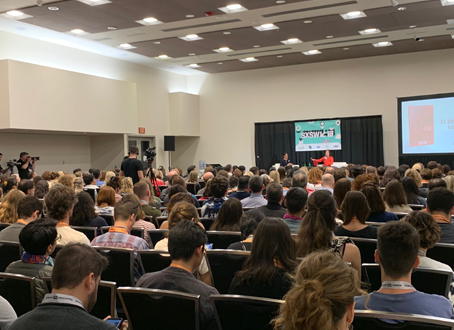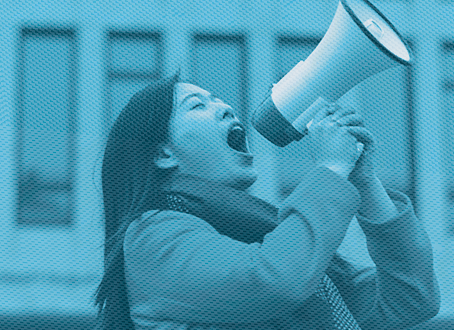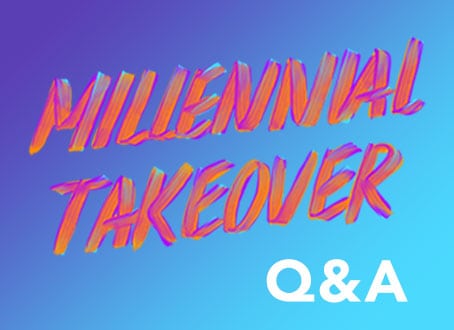This interview is the third of nine in a series of Q and As with leading changemakers, representing the Millennial generation who are working across sectors to be the force for change on the issues they care about most.
Tell as a little bit about yourself and your work.
I grew up in the Baltimore area and attended local public schools. Even in my earliest memories of the city, Baltimore’s story was always one of two cities: many of our neighborhoods enjoy tremendous affluence; yet, an even greater proportion are locked into and suffer from the daily grind of intergenerational poverty. The city’s hyper-segregation, fundamental inequity and chronic disinvestment play out in racial terms because its predominantly Black neighborhoods and communities struggle disproportionately.
When I returned home at 26, I started my work in Baltimore as an organizer, building infrastructure in communities that need it most. My early professional experiences made clear to me that we had the energy, talent and enthusiasm, but not necessarily the organization or institutional capacity necessary to address the city’s systemic challenges. As a social entrepreneur, I work to simply connect the talented individuals and leaders living in our communities to opportunities to make the biggest difference in the city, from tackling issues of addiction to addressing long-term unemployment to eliminating chronic absenteeism. Ultimately, Baltimore Corps represents a massive investment in our city’s talent base. The organization is tireless in its efforts to recruit talented people into the careers and projects that move the needle furthest on our toughest problems.
What problem keeps you up at night? What do you think it will take to solve it?
What keeps me up at night is that we still struggle to see one another, which unconsciously blinds us to genius and talent right in front of us. Yesterday’s barriers of legal separation of people have begun to fall away, but new obstacles like the de facto barricades of race, class, privilege, education and access to social networks compromise our ability to empower people to propel their own lives and improve their communities. Dreams continue to be deferred, which is a loss to the individual and larger society, alike. In what ways would the world, our nation, our individual cities and communities be different, if we more fully experienced the talents of all of our peoples?
It’s essential we acknowledge our shared humanity and create bridges for discourse that involves more voices, recognizing historical trauma and oppression and beginning to move us together to solve critically urgent challenges plaguing our communities. Systemically, we must name, interrogate and dismantle unjust systems, and ensure that no one is locked out of opportunity or internalizes messages of inadequacy. We must learn to appreciate and leverage talents manifested in people who do not look like us and who bring to bear different life experiences. We must realize—and act upon—the fact that our future is tied up in one another.
With technology, the barriers to act have continued to come down – how has that powered Baltimore Corps and your efforts to bring more young people to meaningful work in Baltimore?
At the core of our organization is infrastructure: we leverage CRM and other technological tools to connect, at scale, passionate and talented individuals to one-year placements, career opportunities, internships, apprenticeships, as well as capital for their small business or social venture. We track and qualify hundreds of these opportunities for our talent pools. Without technology, it’s impossible to scale our platform to achieve citywide scale. With technology, Baltimore Corps can execute efficiently, effectively and responsively to serve all of Baltimore.
What is one thing you think everyone should know about your generation?
I want people to know that our generation is frequently underestimated, misunderstood, and discounted as a force for good. Millennials are frequently stereotyped in the workplace as entitled, impatient or unsettled, hopping from job to job. Our research, data, and direct experience contradicts these claims.
I find that our generation is so hungry to contribute to their communities and larger world and, if invested in, will wholly devote themselves to important causes and struggles (often in spite of enormous personal costs). We live in consequential times and confront massive challenges in our democracy and throughout our communities; now, more than ever, we need young people to lead us boldly into the future.
When I look at the network of leaders that we’ve deployed at Baltimore Corps, I observe Millennial leaders architecting campaigns to stem the tide of heroin addiction in Baltimore, building durable workforce pipelines for the long-term unemployed, organizing their communities to inform and direct conscious community development, and much more. These leaders drive change with immense savvy—leveraging technology, online and offline organizing and strategic insight that’s actually up to the task of confronting our challenges. Our generation personifies the opportunity to tackle our challenges in a different way to achieve a fundamentally different result.
Why do you think it’s important to meet young people where they are to galvanize their support for causes and how have you been able to achieve that through Baltimore Corps?
We are witnessing something of a perfect storm as it pertains to engaging and working with young people to change the world. The largest generations in American history are aging into the workforce, building and leading institutions and innovating at a rate we have never seen before. To boot, they are highly mobile, extremely capable and deeply driven by values. They badly want the world to be different—they expect a world that is fairer, more equitable and achieves better results and life outcomes for everyone—and won’t stop until that vision is realized. And they are up for grabs. The cities, causes and industries that can harness the passion and leadership of young people will be in an amazing position to succeed moving forward. Those that miss it, will miss a profound opportunity to change their future for the better. That’s why it’s critically important that cities like Baltimore go above and beyond to engage, empower and enlist the next generation in the hard work of building stronger communities. This opportunity to bring different people to the table to achieve a different result won’t last forever. The time is now.
What have been some of your biggest challenges?
There are always challenges when building organizations and next-generation institutions that operate differently in terms of their values and who they enlist in the work. Building and aligning diverse teams is incredibly hard but essential; creating and leveraging technology in a sector that rarely invests in infrastructure is challenging. However, I have found that the biggest challenge is sustaining oneself in the work when the work, by definition, exacts a high, personal cost. For me, terms like self-care are no longer kitchy or theoretical—they represent an essential set of practices, habits and boundaries that are critical to driving ongoing success in the work.
What has been your favorite success story?
My favorite success story is every time an individual connects to their high calling through our platform. It has been gratifying to witness hundreds of individuals accelerate careers in social change and public service, launch new models of impact and build community with another as we endeavor to change Baltimore for the better, together.
Who are some fellow next generation leaders you admire?
Laura Weidman Powers, Chris Wilson, Wes Moore, Brittany Young, Sarah Hemminger, Sam Novey.
What’s next for you? What are some of your dreams and goals?
I recently had an opportunity to serve as executive producer on a film called Charm City, and it was fascinating to observe how the power of media can shift behaviors and mindsets at a global scale. It’s really fun to learn about and try to pull different levers for change. Ultimately, my bottom line is Baltimore and my community. I’d love to build several different kinds of organizations and institutions that all embrace the challenge of building equitable communities. We need so many different kinds of solutions to so many problems. I would, for example, be very interested in driving comprehensive community development as a complement to our work at Baltimore Corps (that builds diverse and equitable talent pipelines into the economy). We work hard to invest in the workforce potential of people living in our communities and neighborhoods; how can we further shape and strengthen those communities? What assets are now in evidence that we can leverage to bring more affordable housing, healthcare or education to a place that needs it? I am fascinated by these opportunities.
Interested in learning more about Baltimore Corps? Check out their website at baltimorecorps.org and follow them on social media at @baltimorecorps.
We will be featuring interviews from each of the leaders representing the Millennial generation on key movements and issues today who participated in our recent 10-day Instagram takeover. Stay tuned for the rest of this series and see their stories as part of an infographic detailing ten key traits about how Millennials engage with causes, based on our ten years of research, here.





